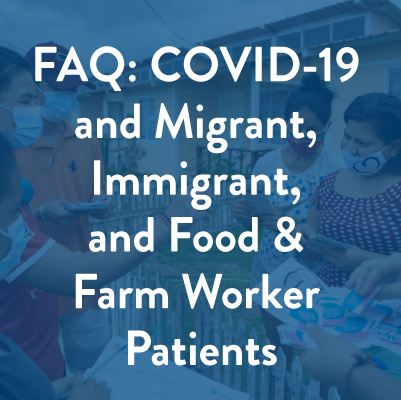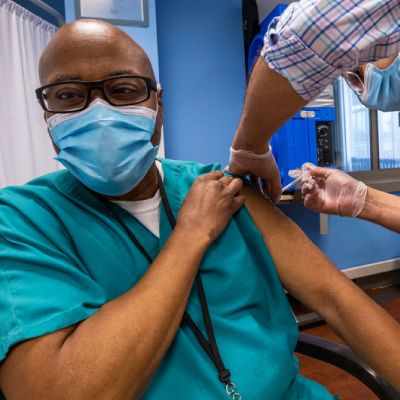- Who We Are
- Clinician Employment
- Publications
- Witness to Witness (W2W)
- Kugel & Zuroweste Health Justice Award
- Your Voice Matters: Photovoice Project
Tue, 01/08/2019 | by Laszlo Madaras


[Editor’s Note: Two years ago this week, we welcomed Laszlo Madaras, MD, MPH, SFHM to Migrant Clinicians Network as Co-Chief Medical Officer. As a family doctor who speaks half a dozen languages with his patients, and as an immigrant himself, Dr. Madaras embodies the selfless and dedicated clinician, providing far more than just health care to his patients. Here, he writes a reflection on his own immigrant experience and how it reframes his reading of current immigration events.]
What a difference a half-century makes. 50 years ago in the fall of 1968, I arrived in America as a young boy, and my family was not very different from many of those waiting at the US-Mexico border today: we were escaping a government and political system that quashed our opportunities and made daily life difficult and dangerous, in communist Hungary. America invested in us, in some ways, and I like to think that they got a pay-off for that investment. My family contributes to our community and churches, we pay our taxes, we do our civic duties as naturalized citizens. Unlike those who are born here, we naturalized citizens have taken an oath as part of the process of becoming a citizen, and I will never forget standing in front of a judge in a Boston court house next to many others of various colors and creeds, together swearing to defend and protect the Constitution of the United States, to adopt the American way, and to work together to improve our community.
In reading American history, I know that each wave of immigrants through the centuries has faced hardships and overcome difficulties to make their lives and their children’s lives better. I want to be part of the culture that helps move those lives in a positive direction. Now, I am a family doctor in rural Pennsylvania, where I serve the entire community, be they well-off, poor, or somewhere in between, or white, Latino, or black. In talking with my patients, I see firsthand that our tradition of openness to refugees and immigrants continues to add strength to our country, even though it can be very challenging for those who are already here to accept new people. It can be scary to invite new people into our communities, people we don’t know or don’t share a culture with, particularly when some of us are already not well-off, and we fear that they could take away things that people who live here have worked hard to get. But decision-making shouldn’t be based on fear, but on hope. In my life experience and in my work today -- and the scientific literature backs it up -- immigrants contribute to our society. They’re generally hardworking, and grateful for the work they do get.
While I understand that it’s really quite impossible to organize and process thousands of people who arrive simultaneously at the border to ask for asylum, we have a responsibility -- and they have rights. Under international law, they have the right to ask for asylum. We have the responsibility to process their paperwork in a reasonable amount of time. In the meantime, people should be fed, housed, clothed, and feel safe, as their immigration status is seriously considered. For many, an alternative -- wherein they are forced to stay at the border, or sent back home -- leaves them in precarious and vulnerable states. Many are fleeing violence, and many may not make it out of the grips of violence unless we take their asylum cases seriously and promptly.
As a doctor in Harrisburg, Pennsylvania, I care for everyone who comes to my office, regardless of their political affiliations or their immigration status or their race or country of origin. That is part of the American promise, and a cornerstone of our American character -- that of fair treatment, and of basic rights for all, of recognizing the humanity in everyone. I’m not asking for open borders or indiscretion, but I do ask that we treat those who are asking for asylum with respect, with care, and with love -- just as I was cared for, so many decades ago.
Like what you see? Amplify our collective voice with a contribution.
Got some good news to share? Contact us on our social media pages above.
Return to the main blog page or sign up for blog updates here.







